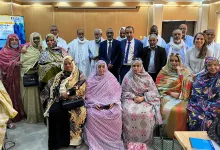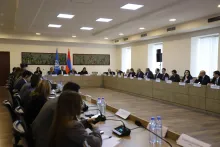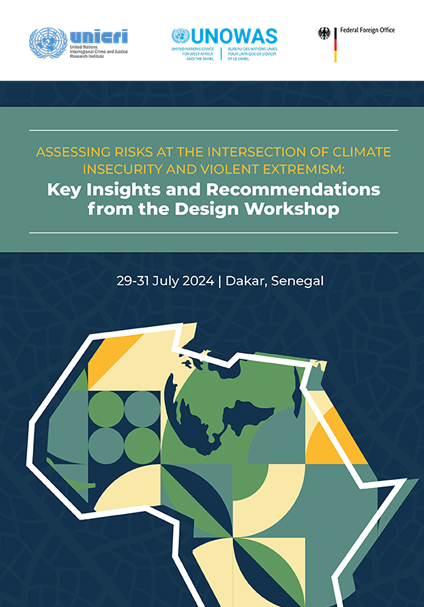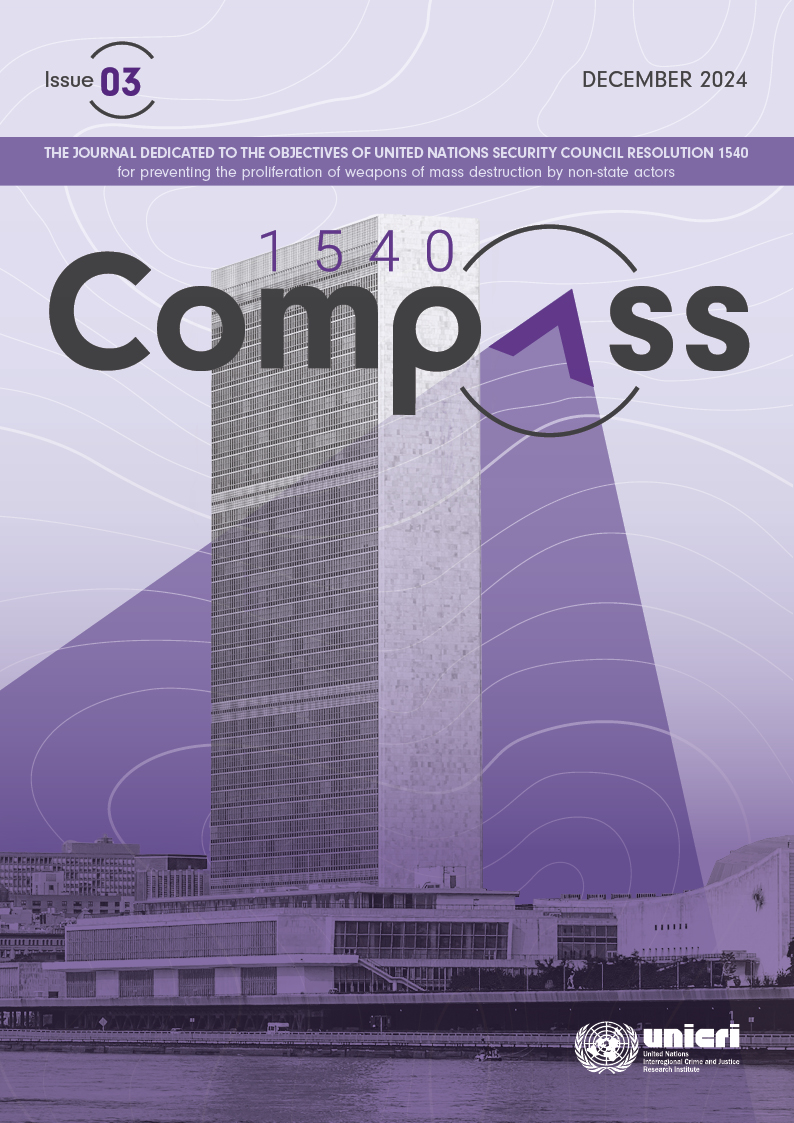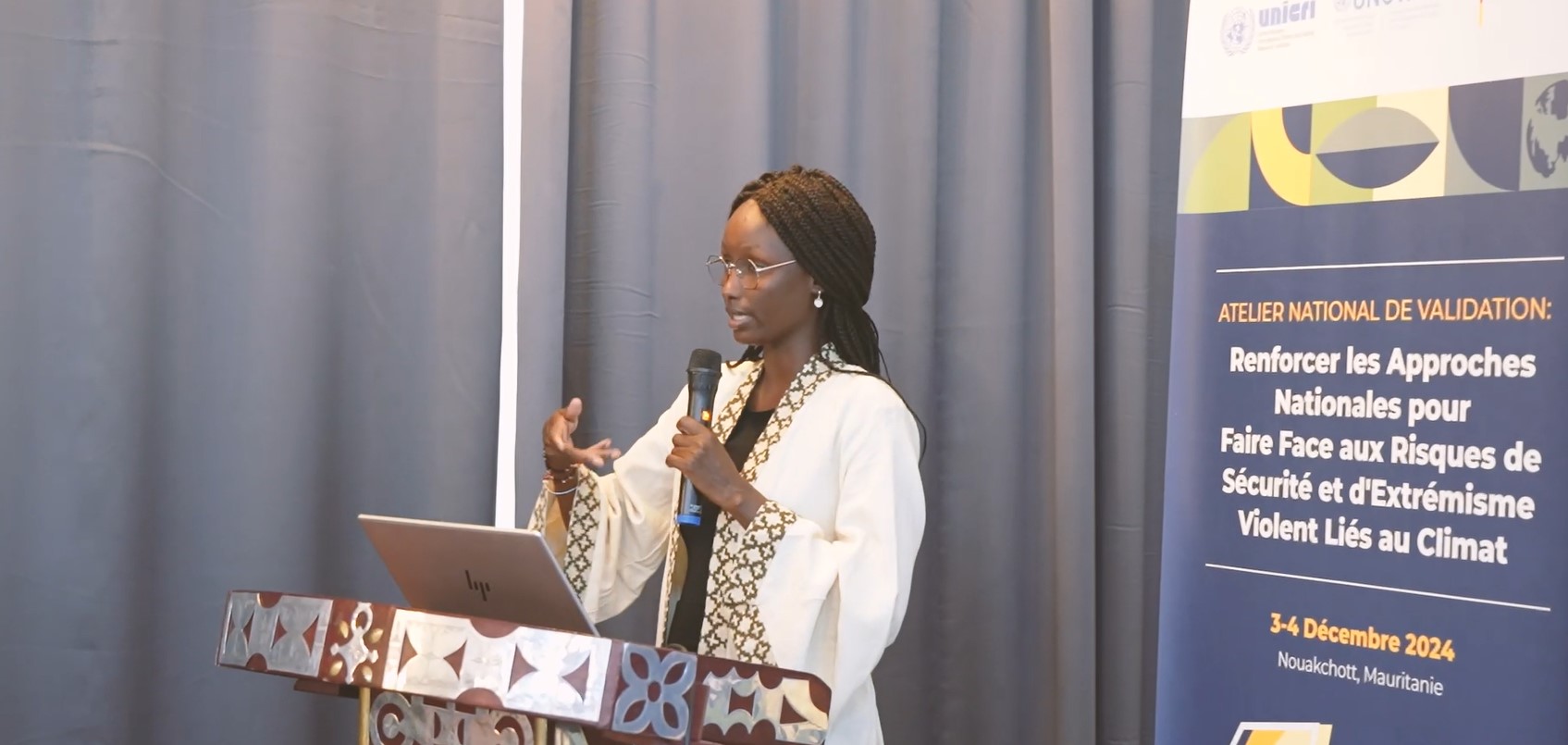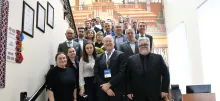UNICRI’s Critical Minerals Initiative addresses the urgent challenges and vulnerabilities in the critical minerals supply chain. As the global demand for minerals like cobalt, lithium, and rare earth elements grows, so does the risk of illegal mining, environmental crimes, smuggling, corruption, and organized crime.
Environmental crimes, including deforestation, soil degradation, and water contamination caused by illegal mining, threaten ecosystems, biodiversity, and the livelihoods of vulnerable communities. These crimes are intertwined with human rights abuses, criminal exploitation, and the destabilization of governance systems.
Building on its expertise in tackling transnational crime, fostering sustainability, and promoting international collaboration, UNICRI supports key stakeholders in securing supply chains, combat environmental degradation, and protect human rights.
UNICRI’s Strategic Response Framework for Tackling Crimes Linked to Critical Minerals
In September 2024, UNICRI published its Strategic Response Framework for Tackling Crimes Linked to Critical Minerals. This document outlines solutions to address major risks in the sector, including:
- Weak governance and corruption
- Criminal exploitation and conflict financing
- Human rights violations
- Environmental degradation
- Supply chain vulnerabilities
The framework emphasizes strengthening legal and regulatory systems, enhancing risk assessment tools, and leveraging advanced technologies like blockchain and AI for traceability and enforcement. It also promotes capacity-building, community engagement, and international collaboration to foster ethical sourcing and sustainable development.
UNICRI’s flexible methodology allows tailored solutions to address specific national and regional contexts while fostering global collaboration.
How UNICRI Can Support Stakeholders
UNICRI collaborates with governments, private sector actors, civil society, and international organizations to:
1. Provide Technical Expertise
o Conduct risk assessments and identify vulnerabilities in supply chains.
o Develop tailored legal and policy recommendations to address environmental crimes and organized crime.
2. Strengthen Capacity and Knowledge
o Deliver training programs for law enforcement, regulators, and industry stakeholders on identifying and addressing criminal activities.
o Facilitate knowledge exchange through workshops, study tours, and expert consultations.
3. Promote the Use of Technology
o Guide stakeholders in adopting advanced tools like blockchain, AI, and satellite monitoring for traceability and enforce ment.
o Provide technical handbooks and practical guidance on integrating technology into investigations.
4. Foster Collaboration
o Create platforms for dialogue and knowledge-sharing among governments, industry leaders, and civil society.
o Build multi-agency partnerships to strengthen coordination and response mechanisms.
5. Support Sustainable Practices
o Advocate for alternative livelihoods to reduce reliance on illegal mining.
o Promote adherence to responsible sourcing standards and environmental safeguards.
What has been achieved?
UNICRI has made significant progress in addressing environmental crimes and other challenges linked to critical minerals, including:
Frameworks and Research
- Strategic Response Framework for Tackling Crimes Linked to Critical Minerals (2024): A roadmap for addressing environmental, social, and governance vulnerabilities in the sector.
- Southeast Asia Study (to be published in 2025): An in-depth analysis of illegal mining trends, environmental crimes, and socio-economic impacts of unregulated extraction.
Awareness-Raising and Capacity Building
Collaboration
- Established a working group of experts to drive innovation and best practices in combating environmental crimes and securing critical mineral supply chains.
Looking Ahead
UNICRI is committed to strengthening global efforts to address environmental crimes, secure supply chains, and promote sustainable development in the critical minerals sector. Through innovative solutions and strategic partnerships, we aim to ensure that the global energy transition is just, inclusive, and environmentally responsible.
Get Involved
Are you a representative of a national or international organization, private sector, academia, or research institution? Join UNICRI in shaping solutions to secure critical minerals and promote sustainability.
📧 Email Matthew Burnett-Stuart at matthew.burnettstuart( @ )un.org to get involved.


